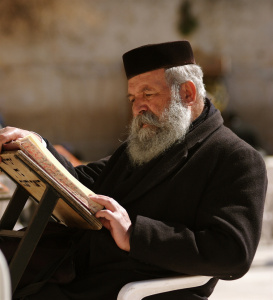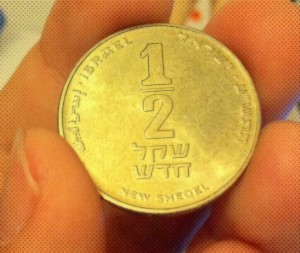 Did you ever notice that the first three plagues were not performed by Moshe?
Did you ever notice that the first three plagues were not performed by Moshe?
G-d appoints Moshe to lead the people out of Egypt, and sends him to Pharoah to demand that Pharoah let the Jews go. Moshe impresses Pharoah with his staff, with the signs G-d showed him, and then begins to warn Pharoah of the plagues to follow. And then when it comes to executing the plagues themselves, Aharon does the dirty work: “G-d said to Moses, say to your brother Aharon…” [7:19, 8:1, and 8:12]
Rashi explains that there was a very good reason for this: the water shielded Moshe and protected him when he was put into the river as an infant, so it was Aharon and not Moshe who caused the water to turn to blood and to produce frogs. The earth covered for him [please forgive the pun] when Moshe killed the Egyptian who was striking another Jew, so again it was Aharon and not Moshe who caused the ground to suffer the production of lice.
Did the water intentionally do Moshe a favor? Was it even the same water? Would it feel pain if it was turned into blood? No, no, and no again. So why was it so important that Moshe not do these himself?
The Gur Aryeh, by the famous Maharal of Prague, tells us that the Torah is teaching us a valuable lesson. The Torah is teaching us that we must always show gratitude, and certainly not be ungrateful and ignore the kindnesses done for us. Even when it comes to inanimate objects, we are told “don’t throw rocks into the well you drank from.” But all the more so when it comes to another human being — it doesn’t matter if the favor done for us was even intentional, we still have to be grateful. We still have to remember what that person did for us and respond in a way that shows our thanks.

 “Yissachar is a strong donkey, who rests between the borders. And he saw rest, that it was good, and the land that it was pleasant, but he bent his shoulder to accept [the burden] and became an indentured servant.” [49:14]
“Yissachar is a strong donkey, who rests between the borders. And he saw rest, that it was good, and the land that it was pleasant, but he bent his shoulder to accept [the burden] and became an indentured servant.” [49:14]
 There is a profound difference between these two versions of the same Commandment. In the first version, it says you should return your enemy’s property — isn’t it obvious that you’ll return your friend’s property too? But then the later one says the property is your “brother’s,” perhaps implying that you only really have to return the property when someone you love is involved. How should we resolve this contradiction?
There is a profound difference between these two versions of the same Commandment. In the first version, it says you should return your enemy’s property — isn’t it obvious that you’ll return your friend’s property too? But then the later one says the property is your “brother’s,” perhaps implying that you only really have to return the property when someone you love is involved. How should we resolve this contradiction?